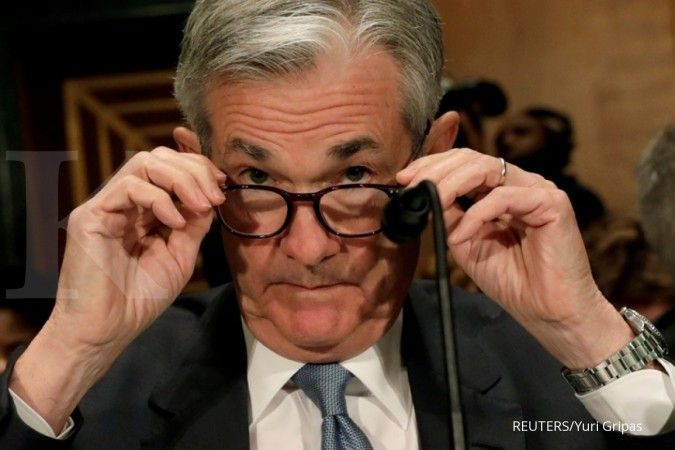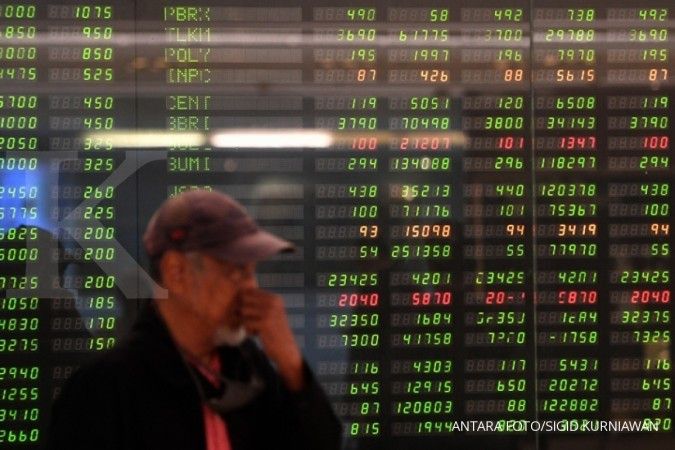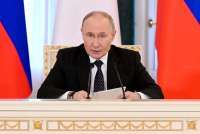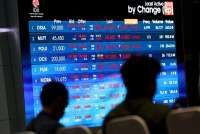Sumber: The Fed | Editor: Hasbi Maulana
MICHAEL MCKEE. Michael McKee from Bloomberg Television Radio. I'd like to go back to the idea of the additional growth that you're getting from the fiscal package and ask you how much you think comes from the supply side and how much from demand. You use words like “might” and “should” about what results should come from this process. But, around the table, did any of the presidents or governors report that businesses are actually getting ready to spend? Is this something that's going to happen? Do we know that there's going to be a supply side effect, or are you just guessing at this point?
CHAIRMAN POWELL. Remember that there are 15 FOMC participants, and we--each of us has his or her own forecast. So, there's a real diversity of views on this, particularly on these fiscal issues. If I could try to summarize, it would be that I think broadly speaking participants believe there will be meaningful increases in demand from the new fiscal policies for at least the next, let's say, three years. I think there's a general view as well that supply side issues--that there could be supply side effects as well, and you would see that again through higher investment, driven by lower corporate tax rates and the expensing of some investment, which would drive, tend to drive productivity over time. If you make investment more attractive, companies should do more of it. It's uncertain, though. I mean, I spent many years of my life working with companies and discussing, and you know, the cost of capital is one of many factors that they'll consider. It isn't the only factor or the principle factor, but it should result in more investment, and investment should drive productivity.
At the same time, the--you know, I mentioned labor supply. You should see some labor supply effects over time from lower individual effective tax rates. The whole thing is very uncertain, and particularly the supply side effects should and would be expected to take longer to appear and would be less certain in amount. So, that's really as good as you can go. And, you know, we've all looked at the literature carefully. We've all thought about it. We've discussed it with our in-house experts and come up with our own views, and, they're disparate, but that's--I'd say that's about where the views are.
DONNA BORAK. Hi, Chair Powell. Donna Borak with CNN. Just to go back to trade policy, if you don't mind. You said that participants today generally are feeling that the trade policy shouldn't necessarily affect the current economic outlook, but I am wondering if there was any discussion of their fears about inflationary effects. Should there be trade barriers imposed? And, secondly, you know, we might be on the verge of a tit-for-tat trade war with China. Wondering what your thoughts are of how that might dampen the economic--the global economic outlook going forward should that occur?
CHAIRMAN POWELL. You know, at this stage, what our FOMC participants discussed--it wasn't--it was just that this is a new risk that had been probably a low-profile risk, which has become, you know, more prominent risk to the outlook. That's really what people were saying. They didn't get into talking about particular, you know, whether it's inflation or growth or whatever it would be. So, that's not something that did come up. You know, your second question, sorry, was China?
DONNA BORAK. In the event that the U.S. and China end up in a tit-for-tat trade war, or any other retaliatory actions that are imposed elsewhere against the United States, what that means for the global economic outlook and whether that was something that was discussed. And, are you worried about?
CHAIMRAN POWELL. That didn't--it's not something that came up in particular. And, let me say, you know, we don't do trade policy here at the Fed, and you know, I would be reluctant to comment on any particular situation with any particular country.
NANCY MARSHALL-GENZER. Nancy Marshall-Genzer with Marketplace. Does the interest rate hike today suggest that Americans are being paid enough? Are you satisfied with the rate of wage growth right now?
CHAIRMAN POWELL. As I mentioned, you know, we've had unemployment decline sharply since, I guess, 2010, when it peaked at 10 percent and down to 4.1 percent now, and we've seen only modest increases in wages. So, on the one hand, what wages should in theory represent is inflation plus productivity increases. You should get paid for your productivity plus inflation, and productivity's been very low. Inflation's been low. So, these low wage increases, in a sense, they do make sense in that--from that perspective.
On the other hand, as the market is tightened, as labor markets have tightened, and we hear reports of labor shortages that we see that, you know, groups of unemployed are diminishing, and the unemployment rate is going down, we haven't seen, you know, higher wages, wages going up more. And I would--I think I've been surprised by that, and I think others have as well. In terms of what's the right level, I don't think I have a view on what the right level of wages is, but I think we will know that the labor market is getting tight when we do see a more meaningful upward move in wages.


/2018/03/08/443373005.jpg)
















